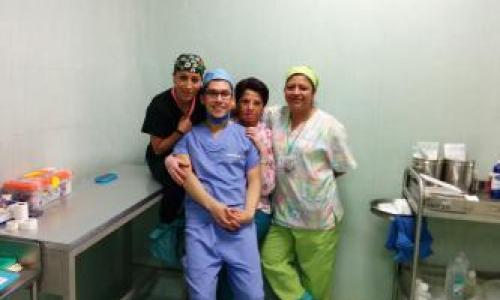
"The old image of the math person chewing a pencil solving math problems; that's obsolete. They now get trained for communication too. Employers are interested in math people because of the problem solving and communication skills."
- Tom Archibald, Mathematics Department Chair
Mathematics is a field of study which has been revived and expanded since the development of the new tech age. Mathematics programs at SFU now combine pure math studies with business or computer programming studies to provide students with a greater skill set and increase their employment opportunities upon graduation.
According to Dale Yamaura, Mathematics Undergraduate Advisor, there is a diverse range of careers for students with a mathematics degree. She says many grads "work in engineering firms, teach high school math, or go into software engineering, finance, banking, research, healthcare, actuarial science, or accounting."
Faye Stefan, Co-op Coordinator for Mathematics in the Science & Environment faculty Co-op Department, reflects upon common misconceptions surrounding a degree in Mathematics. "I find that with a math degree, it's often misunderstood by a lot of students and even with employers, potentially. This is because a math degree is no longer just a pure math degree. There are so many different complementary combinations that are being offered with a math degree now."
There are numerous streams offered by the SFU Mathematics department including Industrial Mathematics, pure Mathematics, Management System Science, Math and Computing Science, Applied Math and Mathematical Physics. The newest stream is Industrial Mathematics. According to Faye, "It's more about operational research; systems and logistics."She continues, "the program is designed exactly towards the demands of the industry, as opposed to a purely academic piece that has traditionally been offered."
According to Dale, about one third of SFU mathematics students choose to continue their education beyond a bachelor's degree. "They usually pursue a Masters in finance, economics, pure or applied mathematics, or computing. Students are also successful continuing to Faculty of Education PDP, or work towards achieving an accounting designation."
Faye has first-hand feedback from employers about why they choose Mathematics students with combined studies. "It's that diversity of skills; the critical thinking piece that comes with a mathematics student that encourages employers to hire them."Faye continues, "employers have told me before that if they can find that combination in a student, they would take that student over someone that doesn't have a skill set that is as diverse."
Co-op students often find job placements easily if they are in a program that combines mathematics with computing science or business. According to Faye, "they apply to a job, and they'll get the job. It's that blend that really pulls employers in. I find quite a number of my senior students that can easily get into top-end engineering Co-op jobs, which can be highly competitive."Faye explains that employers are not necessarily concerned solely with a high GPA. They are most concerned with the technical knowledge students have obtained throughout their studies at SFU.
Students have a variety of choice and maneuverability when choosing a field of employment. The major players with SFU students in recent years have included Statistics Canada, HSBC, Electronic Arts, Copper Leaf Technology, and Environment Canada. Students also tend towards the gaming industry working for companies such as Propaganda games and Nexon Publishing. "A lot of the students really like the gaming industry because they're gamers themselves,"says Faye. "They love it and they've got the programming skills required."Statistics Canada is also a key employer of mathematics students from across Canada.
Faye comments that the math Co-op program at SFU is male dominated - about 75% of the undergraduate population in the math Co-op program is male. But, she says, "more and more women are joining the program. I have a handful of them right now, and they are very motivated and driven."
Beyond the Blog
-
Interested in applying to join the Mathematics Co-op program? Visit their website for more information and to fill out the online application form.
-
To find out more about what some of the Co-op work term opportunities could be for Mathematics students, check out the Mathematics Co-op Profiles on the Online Learning Community.














